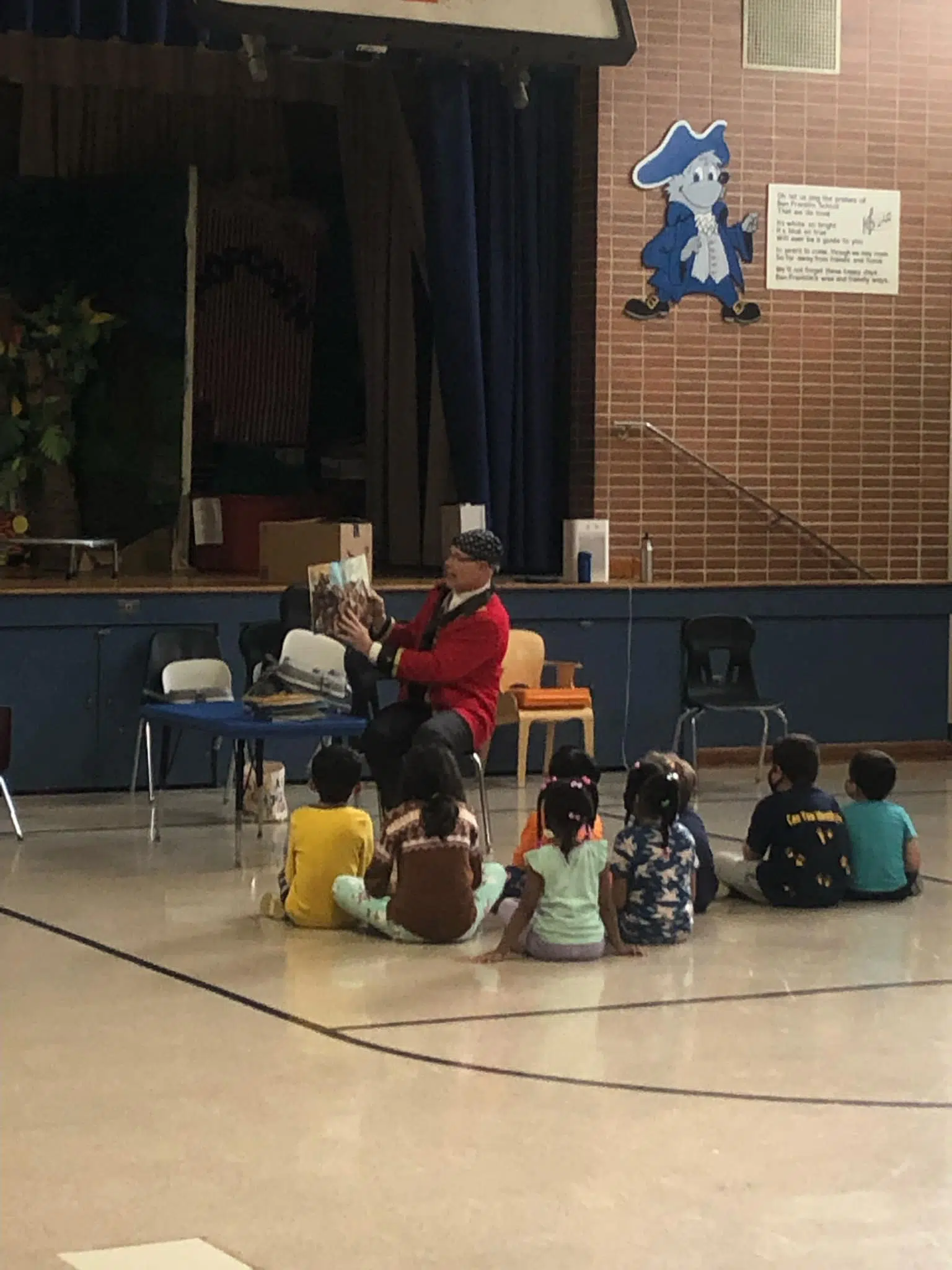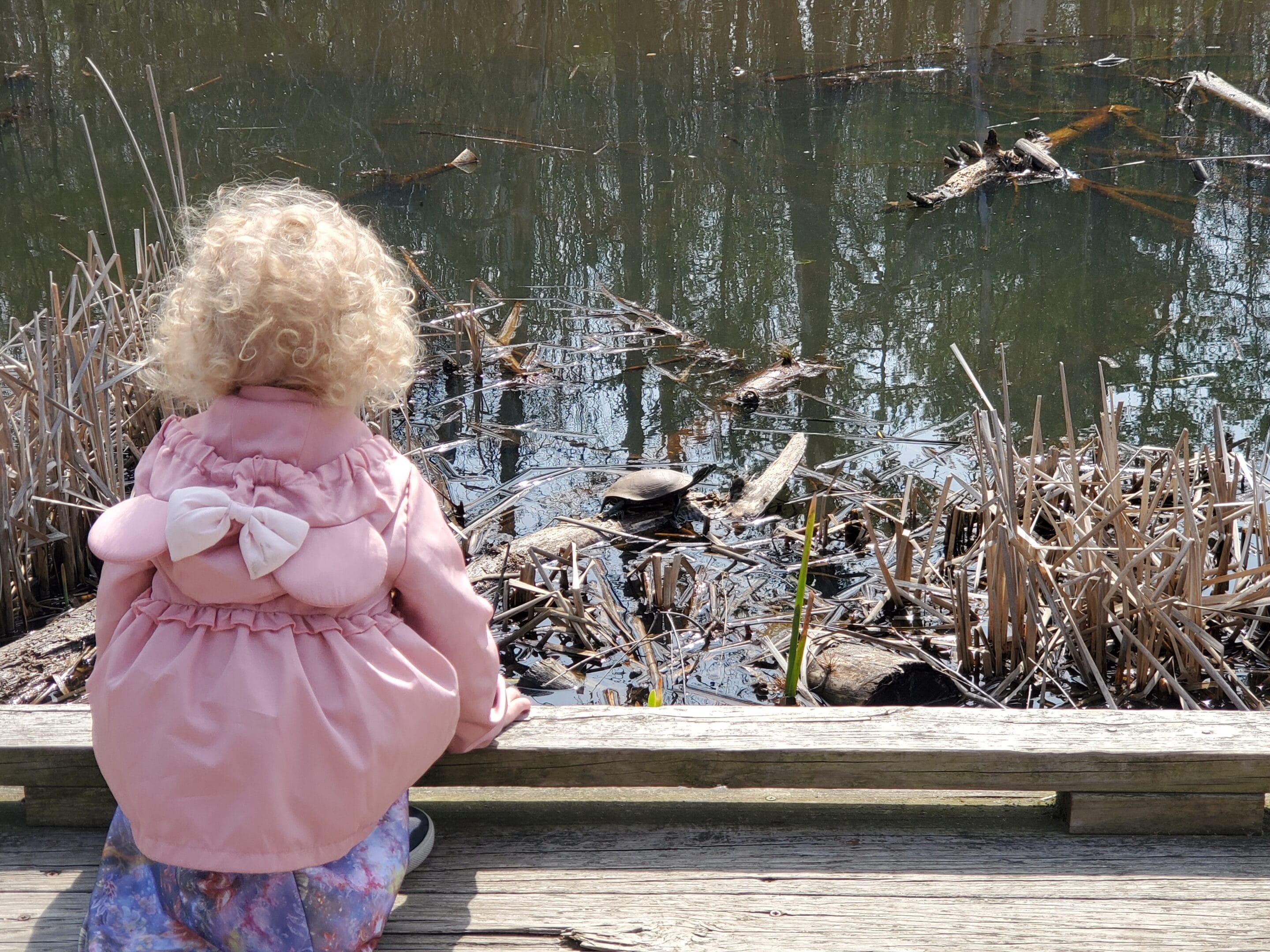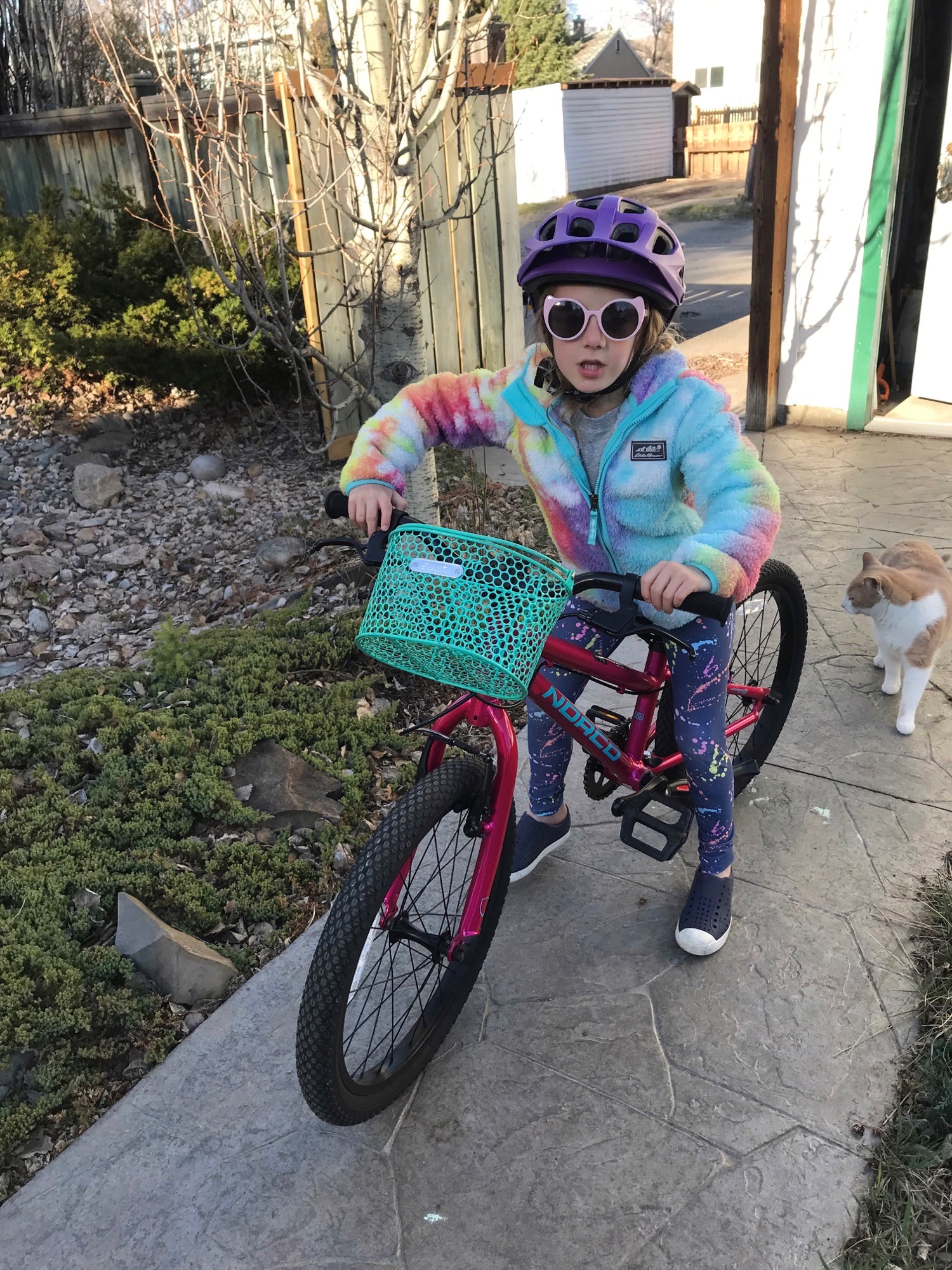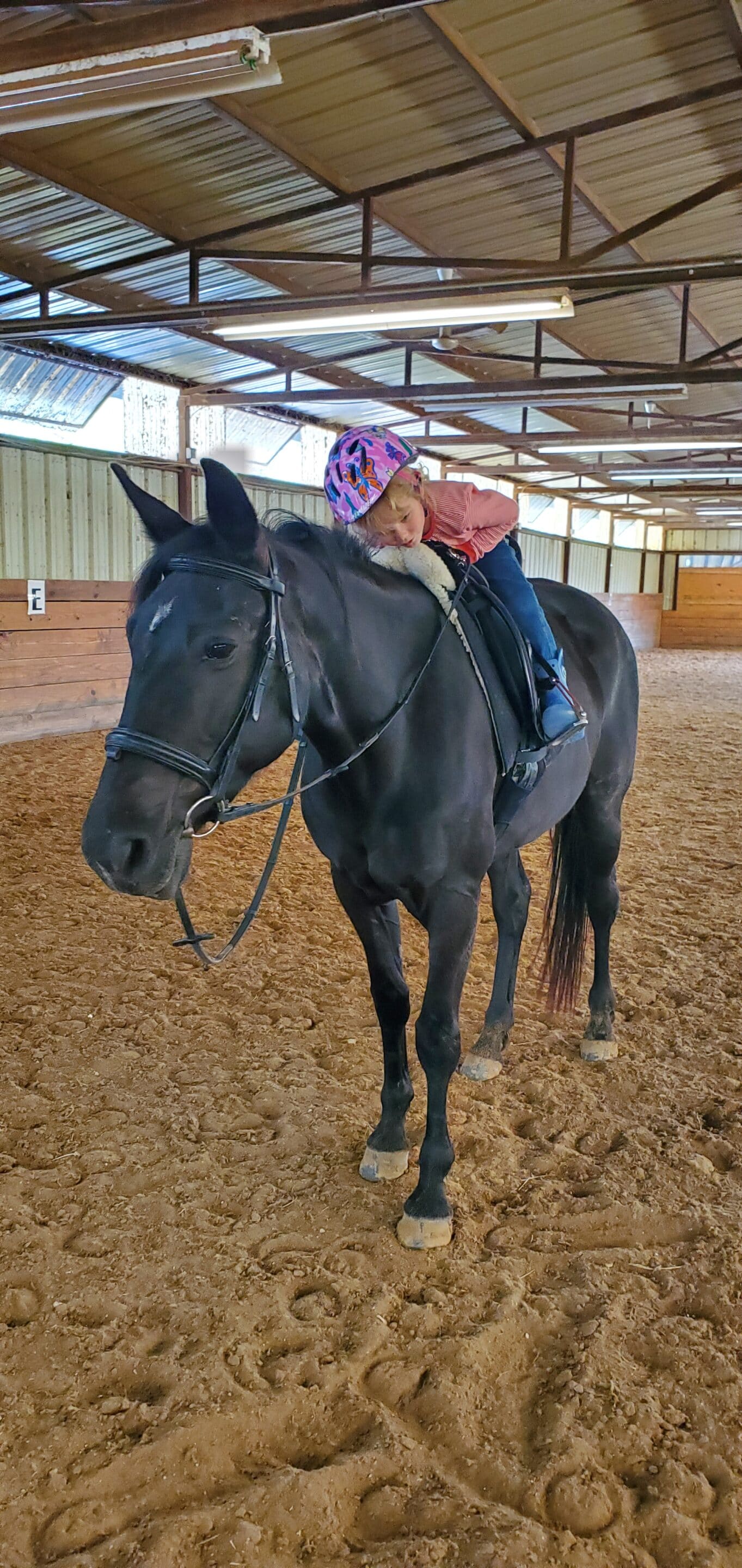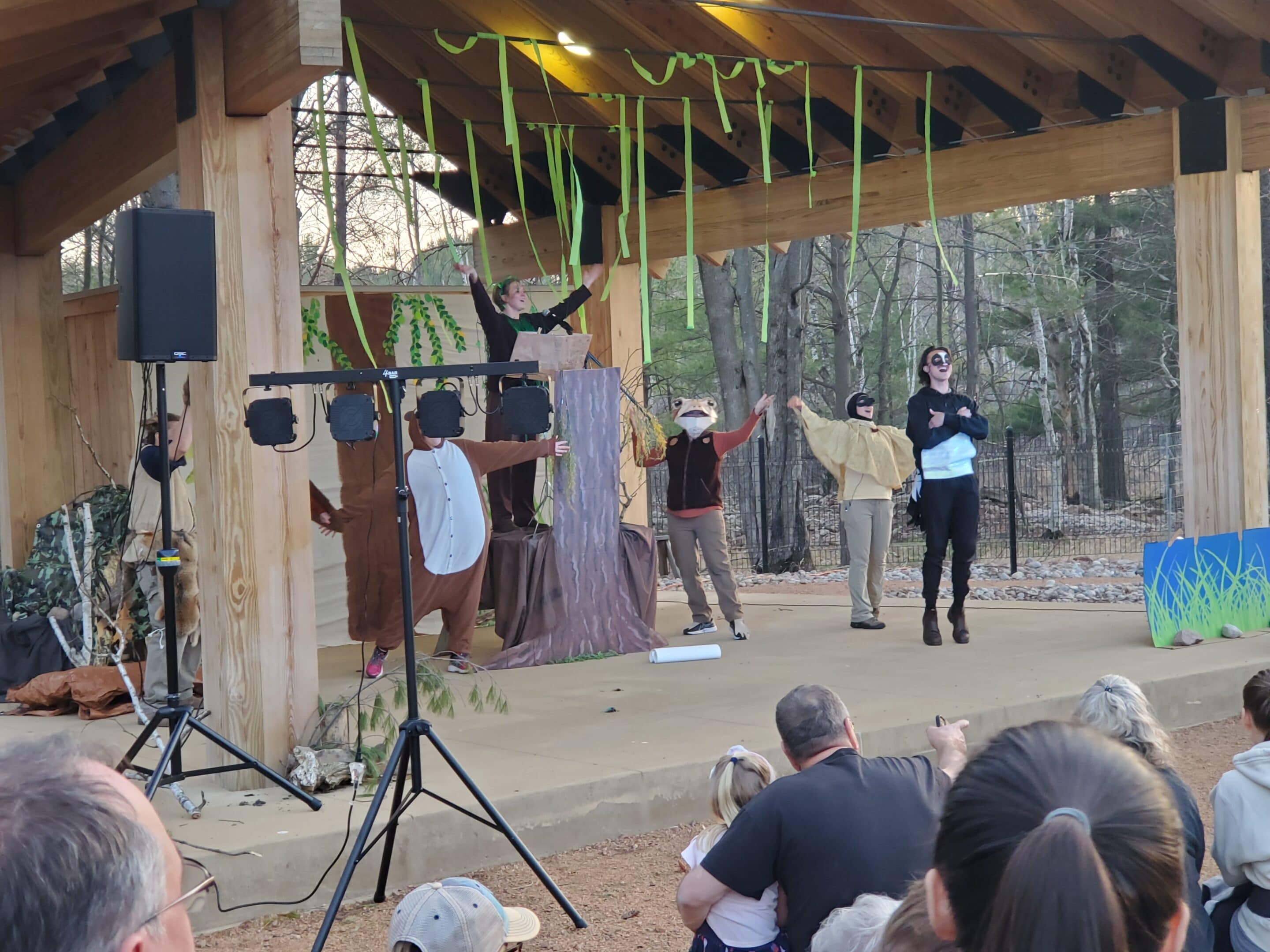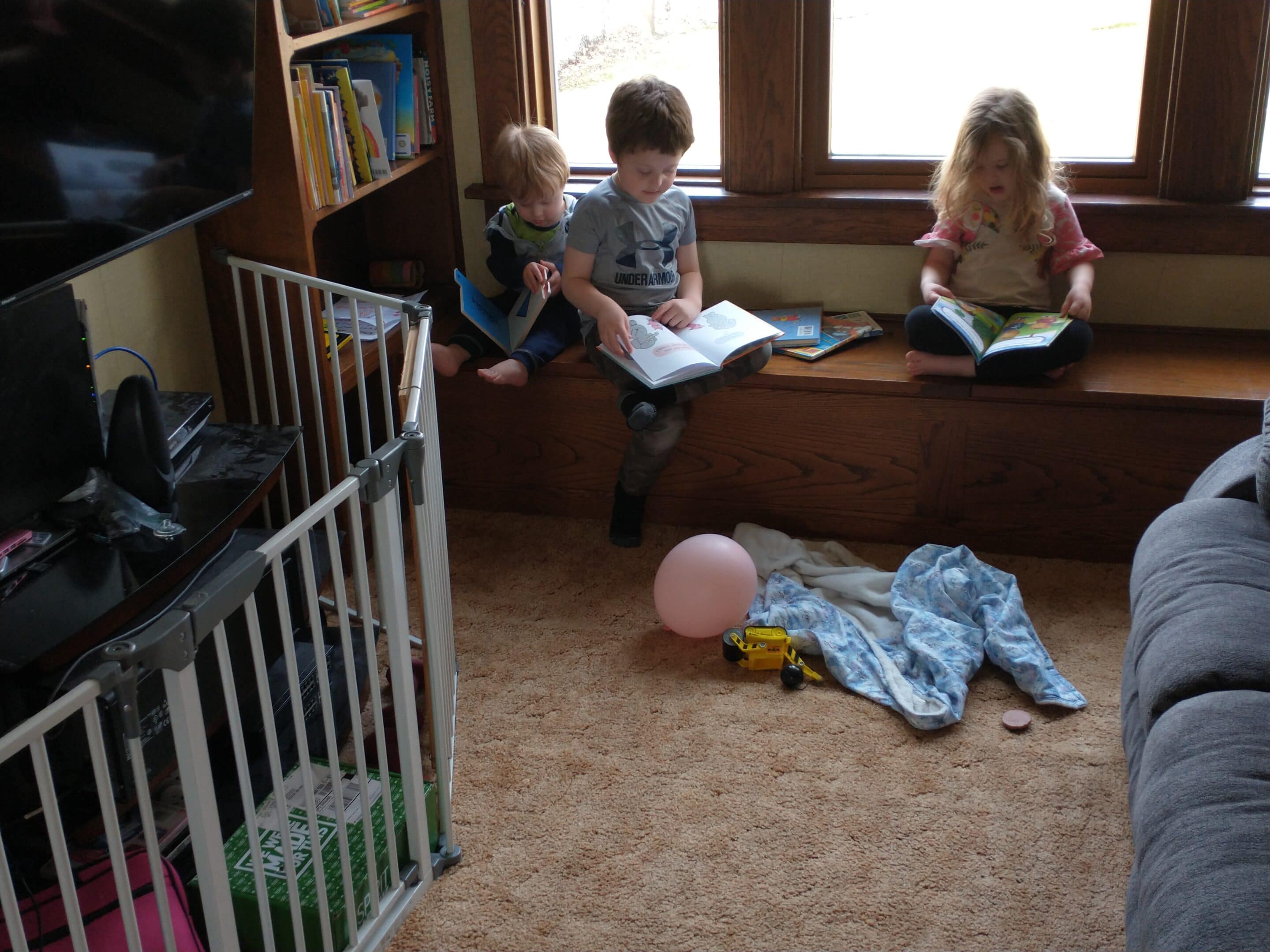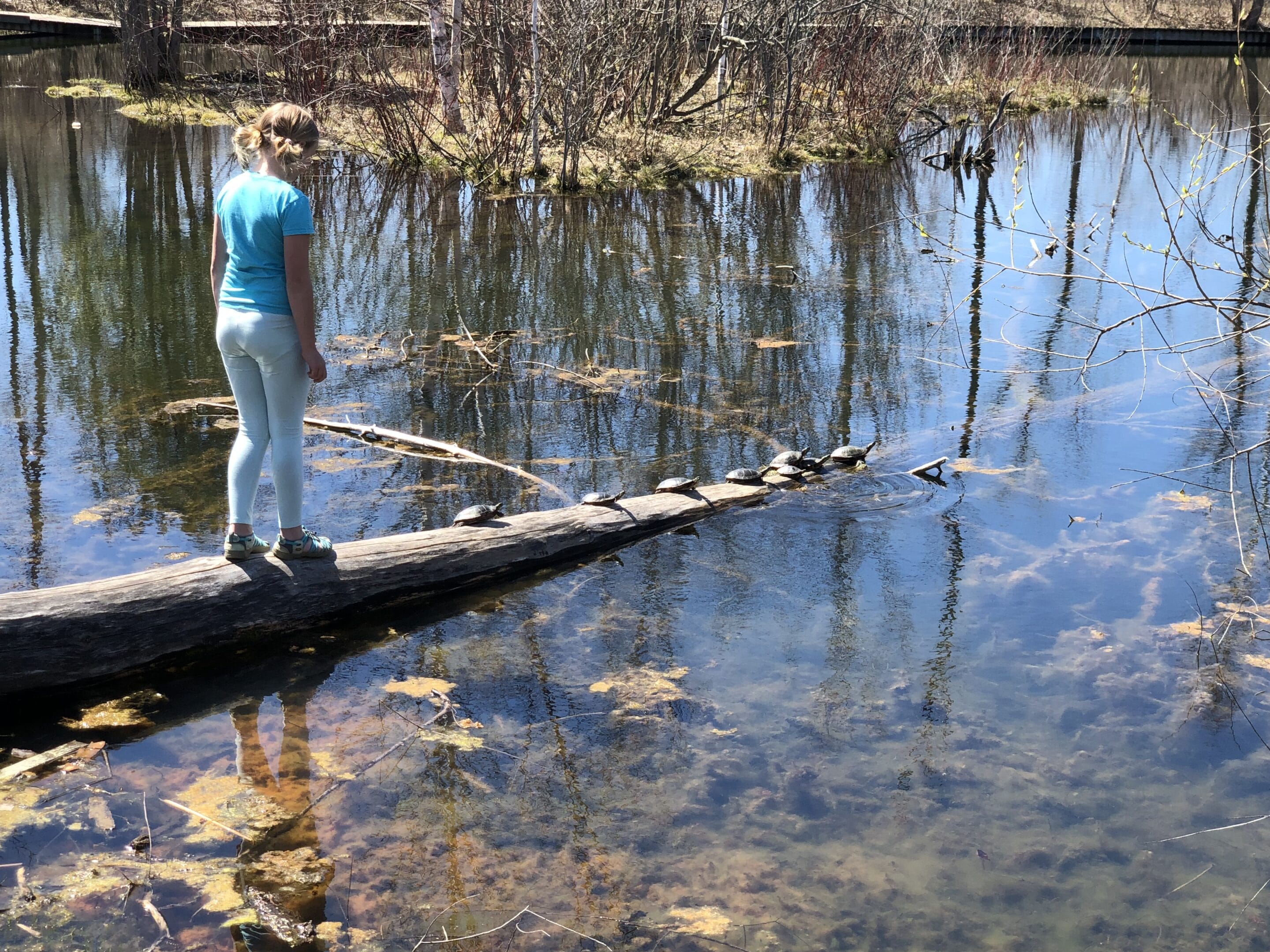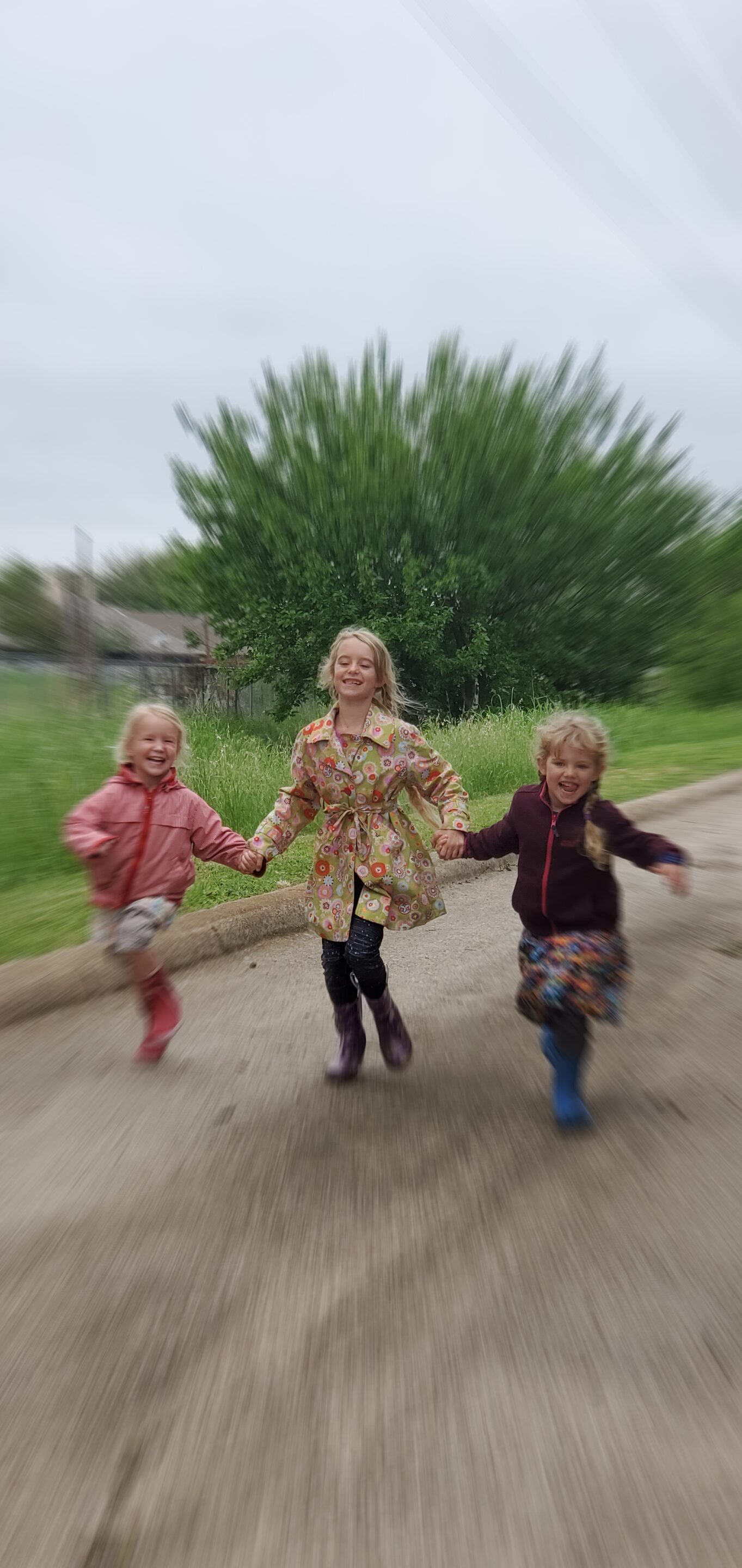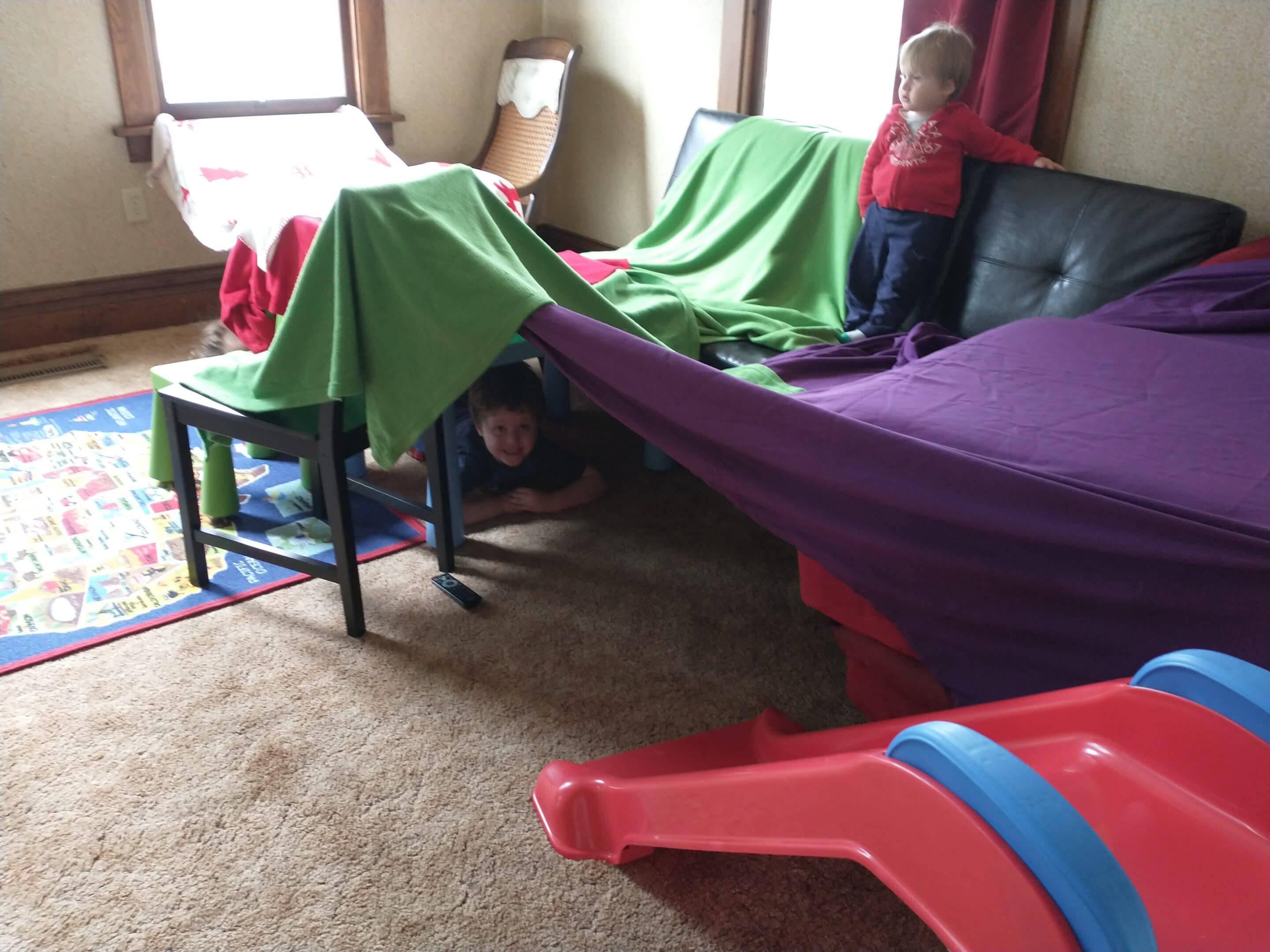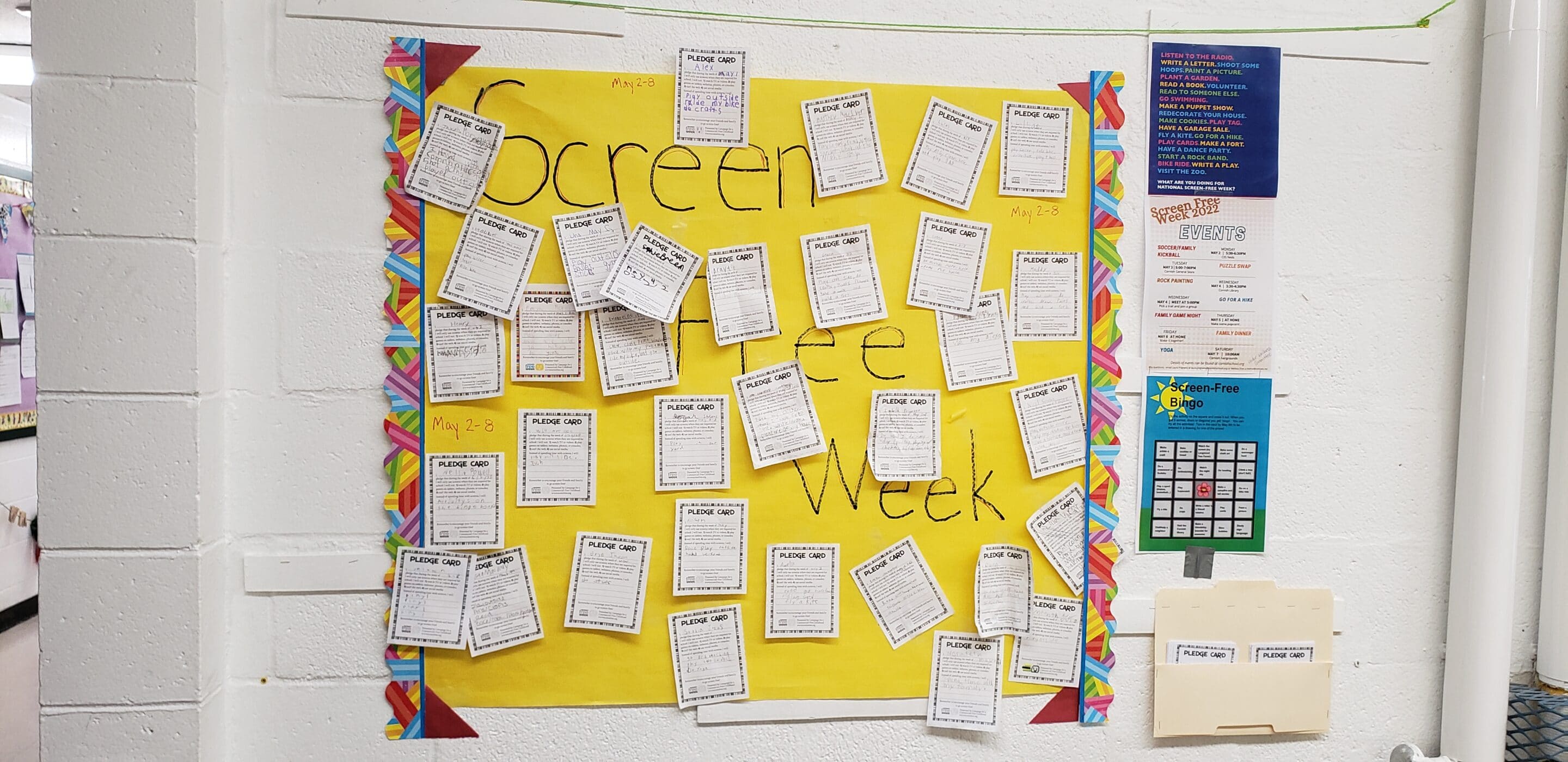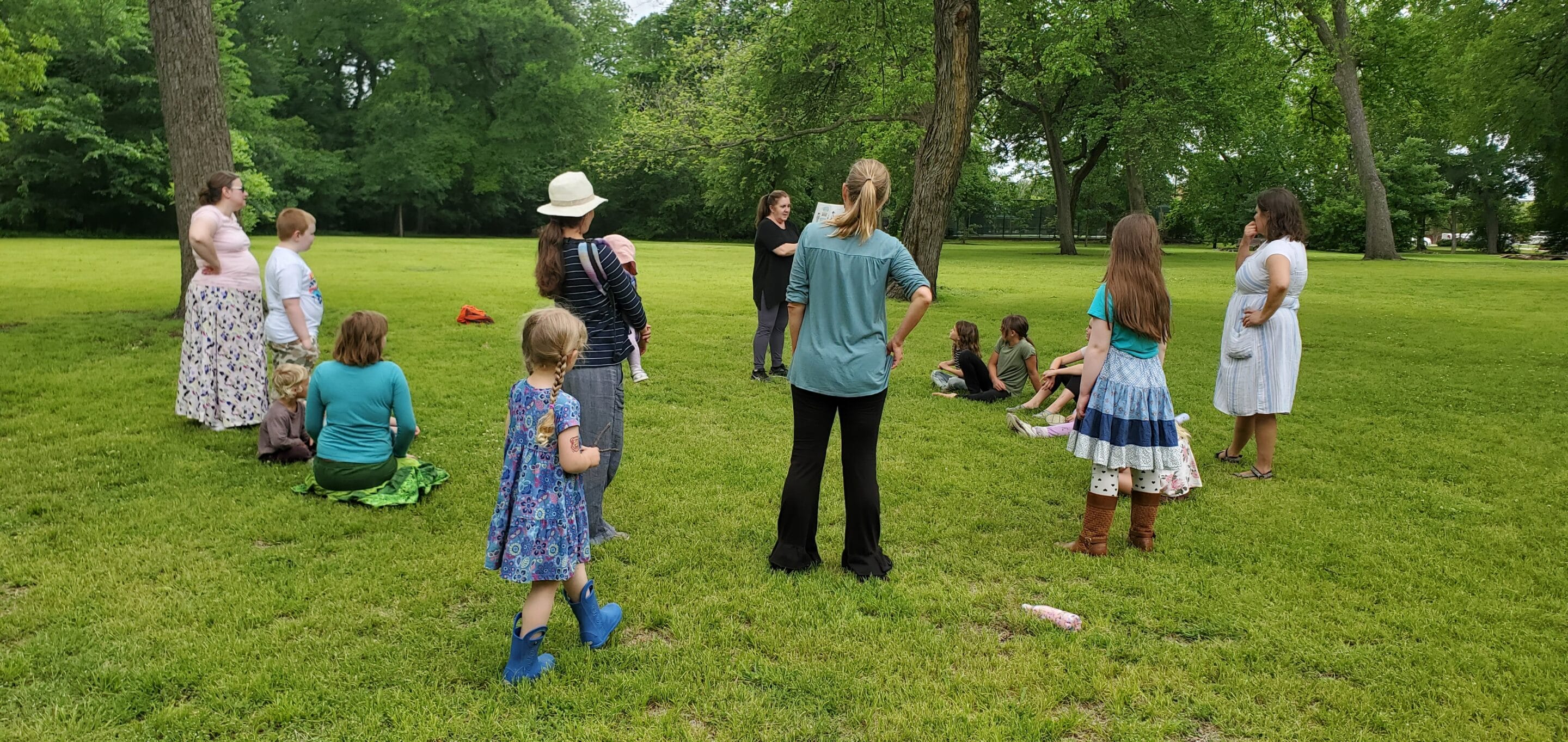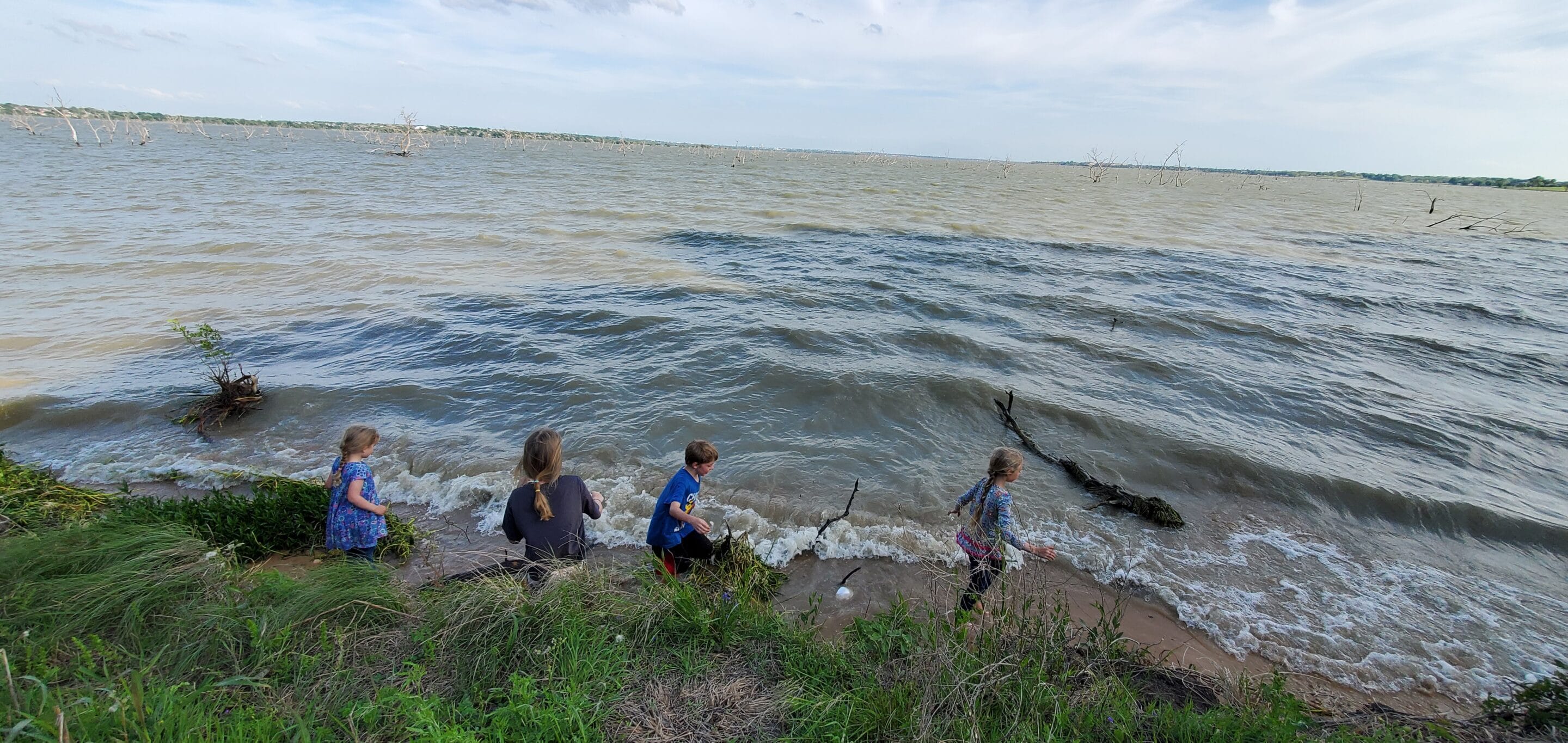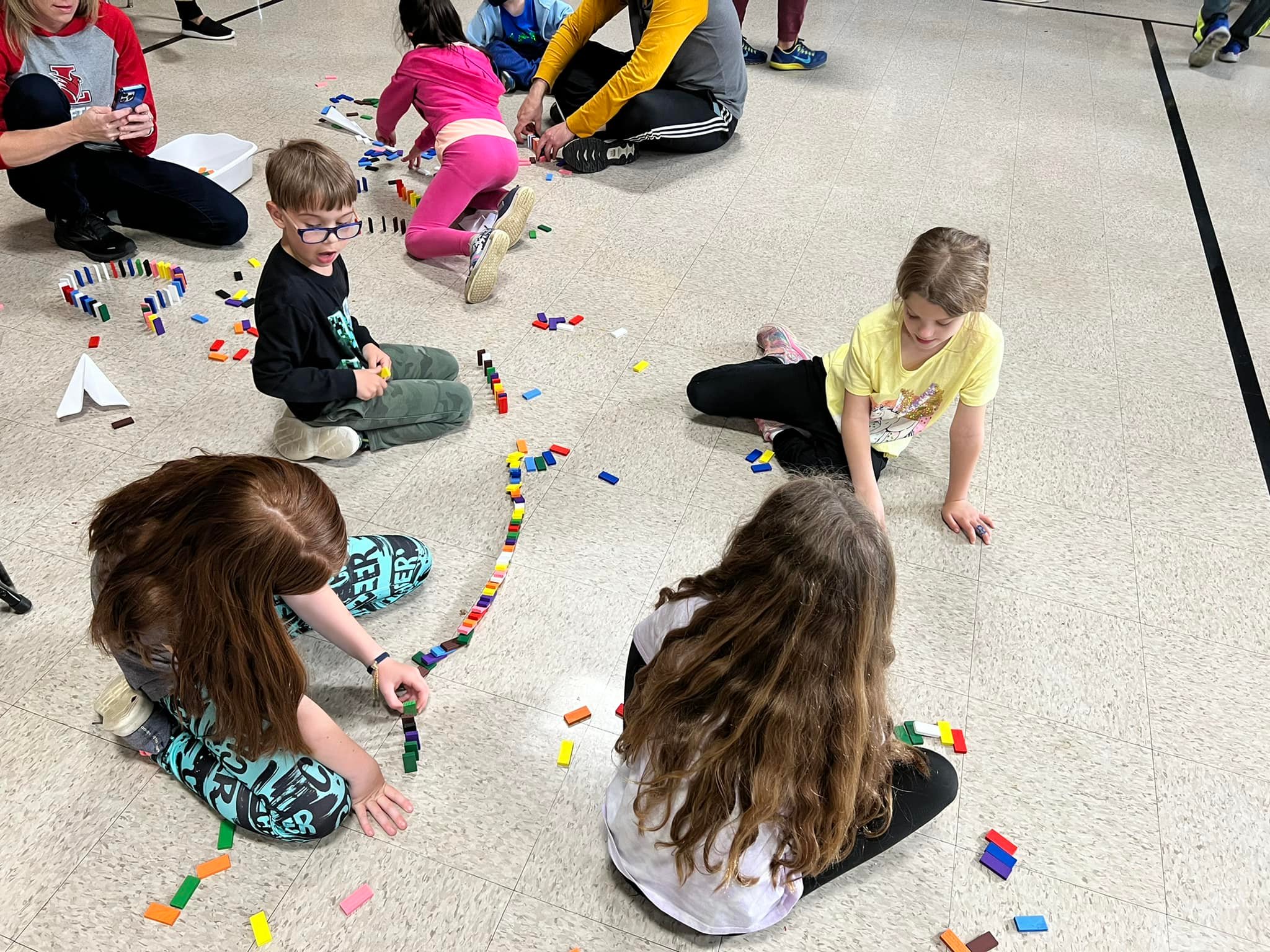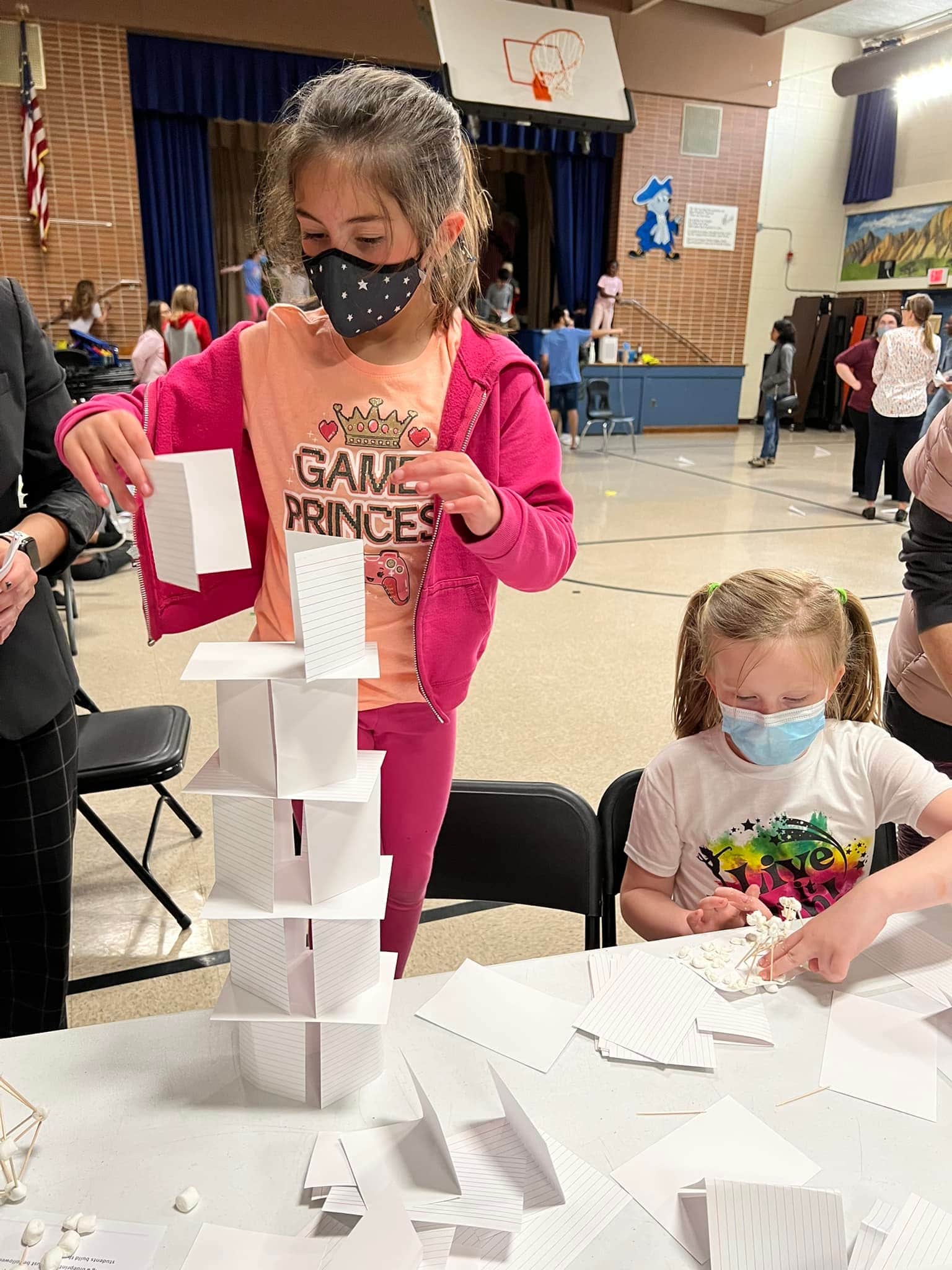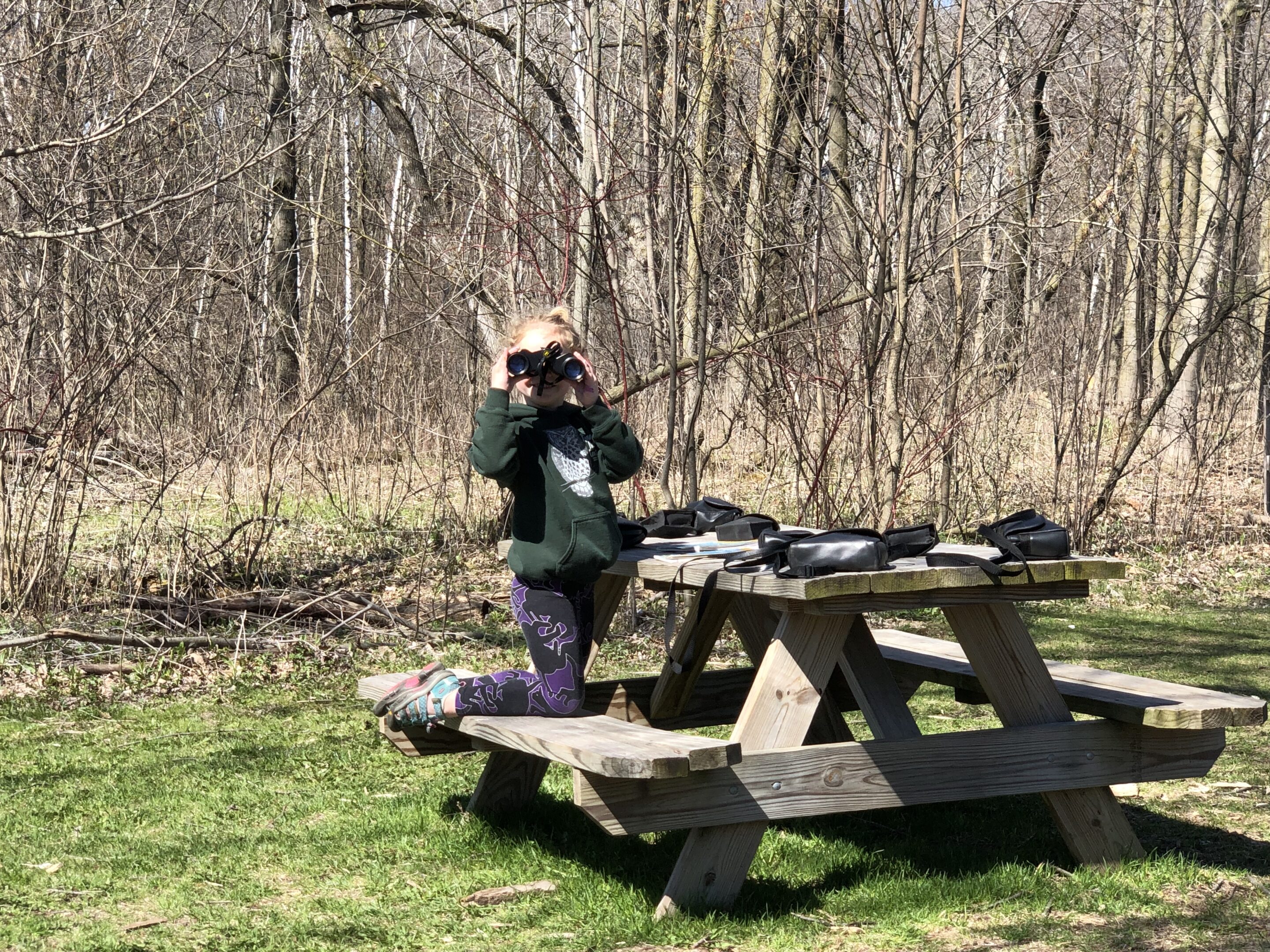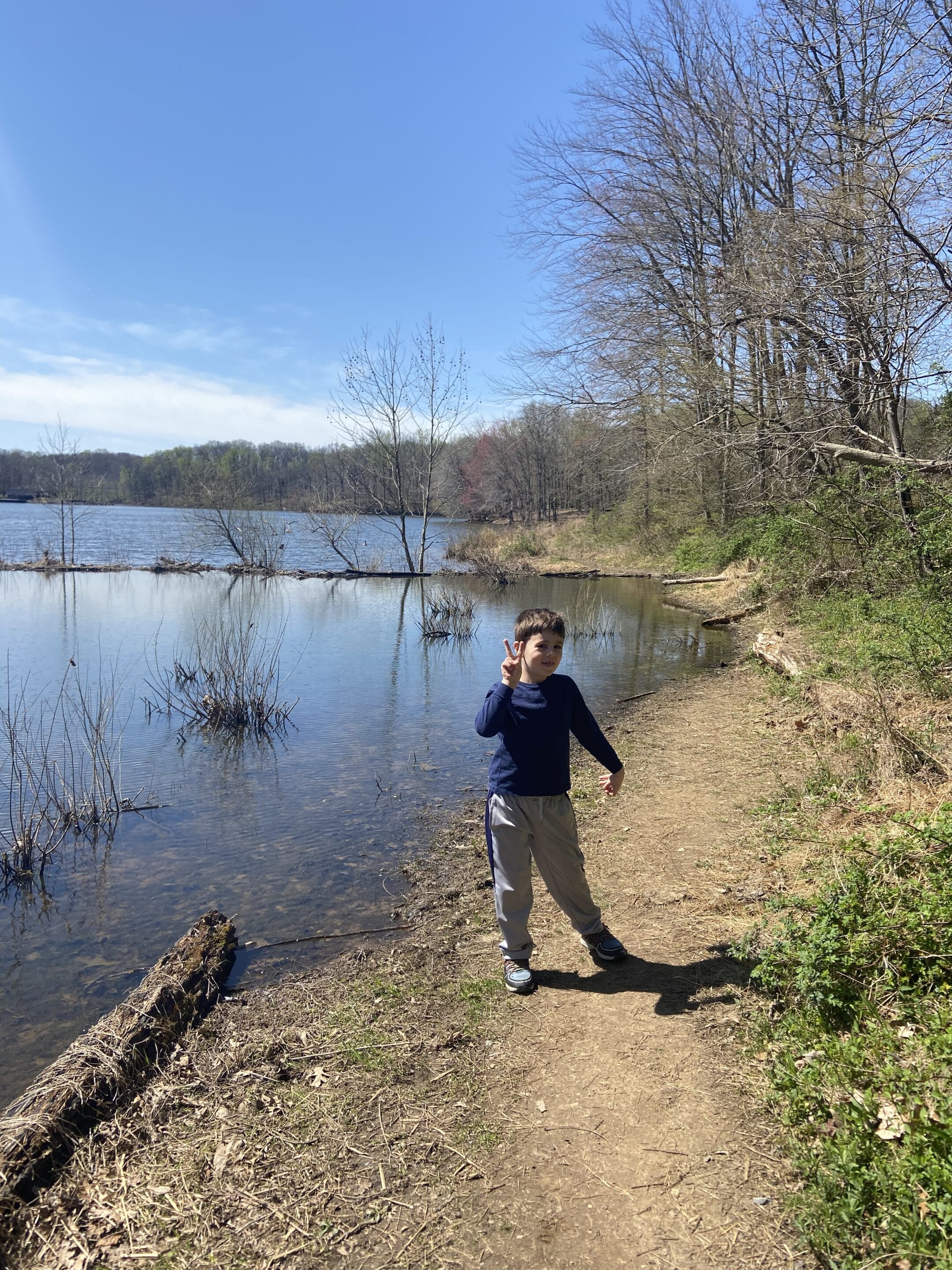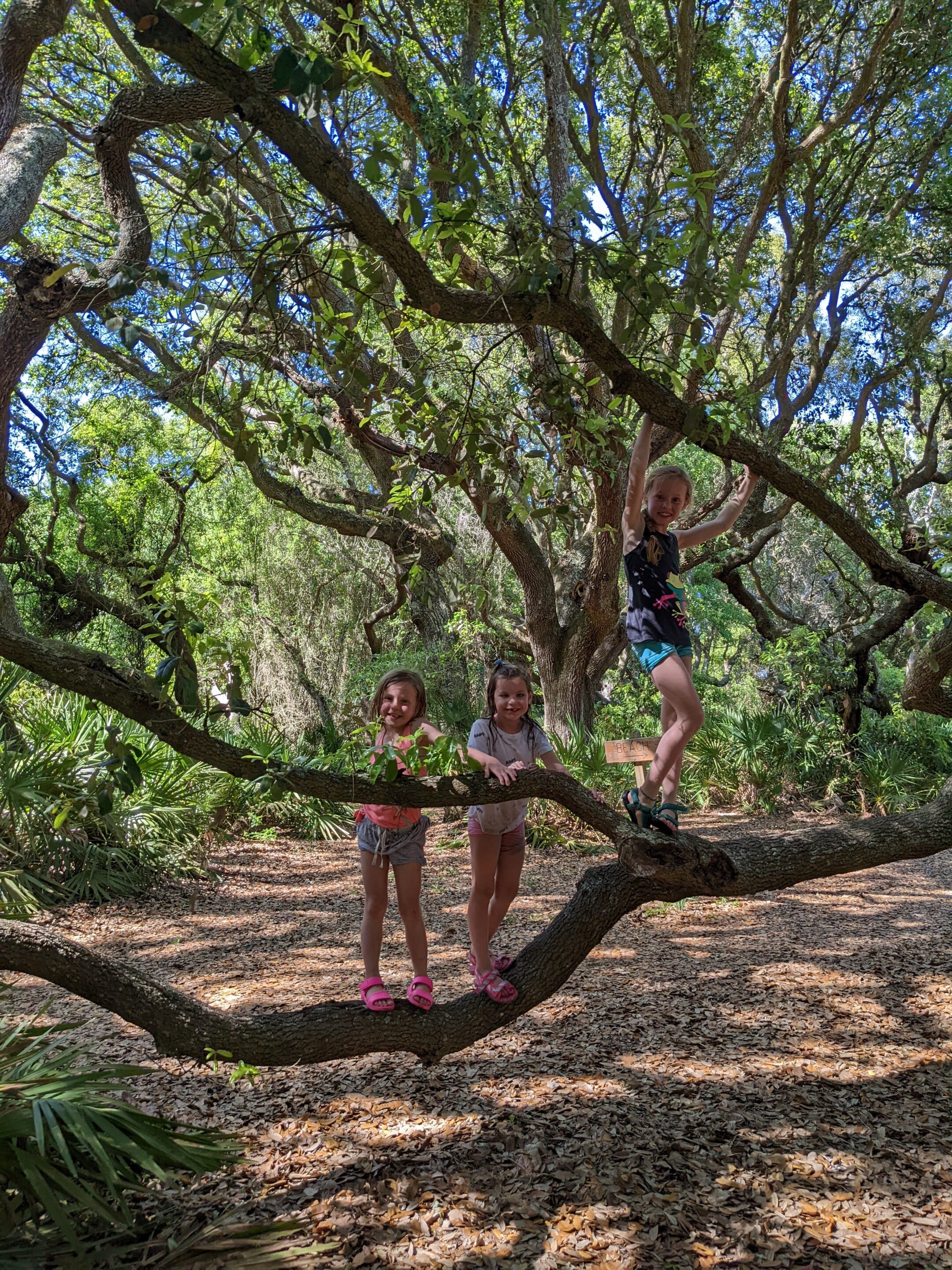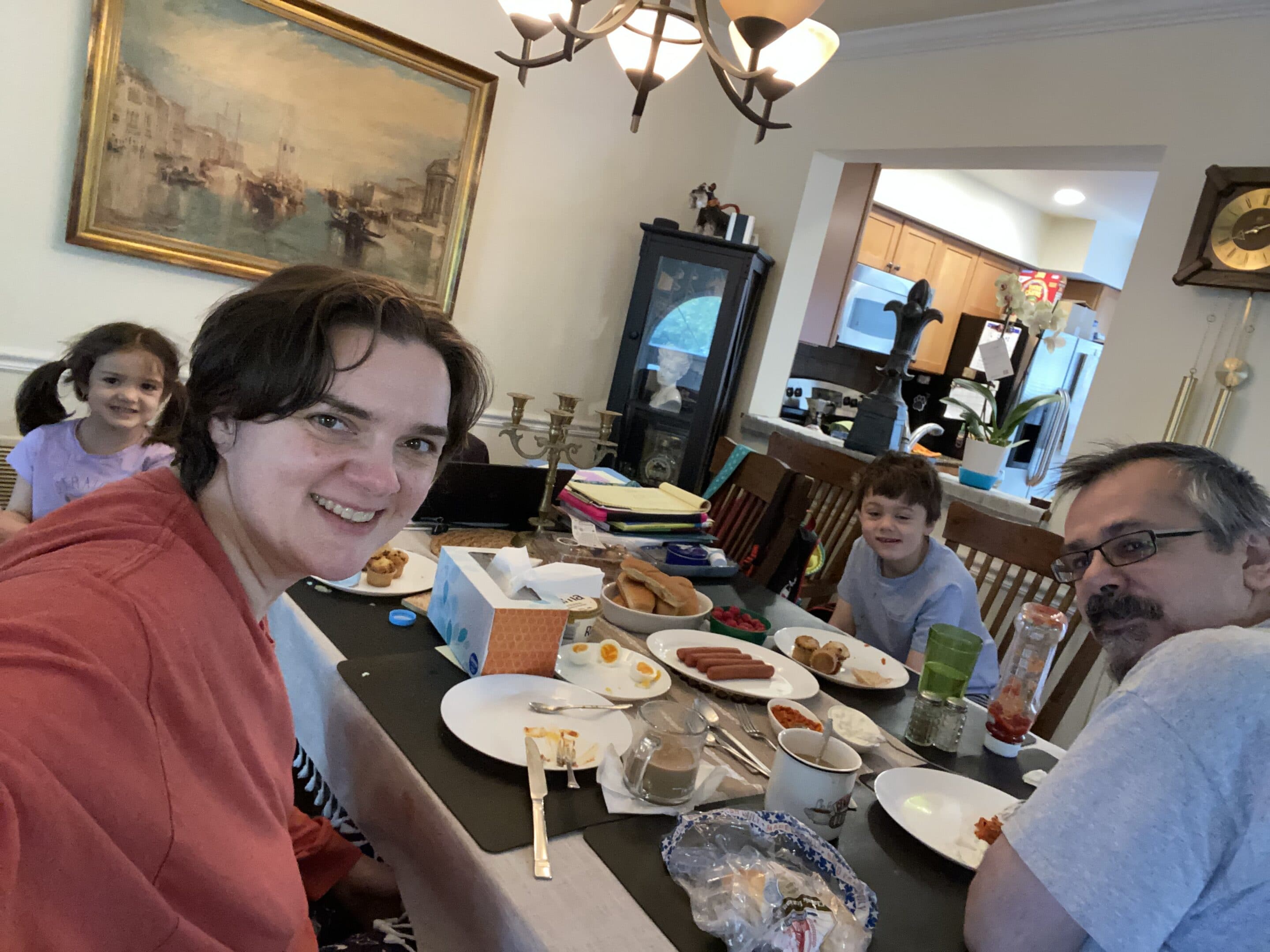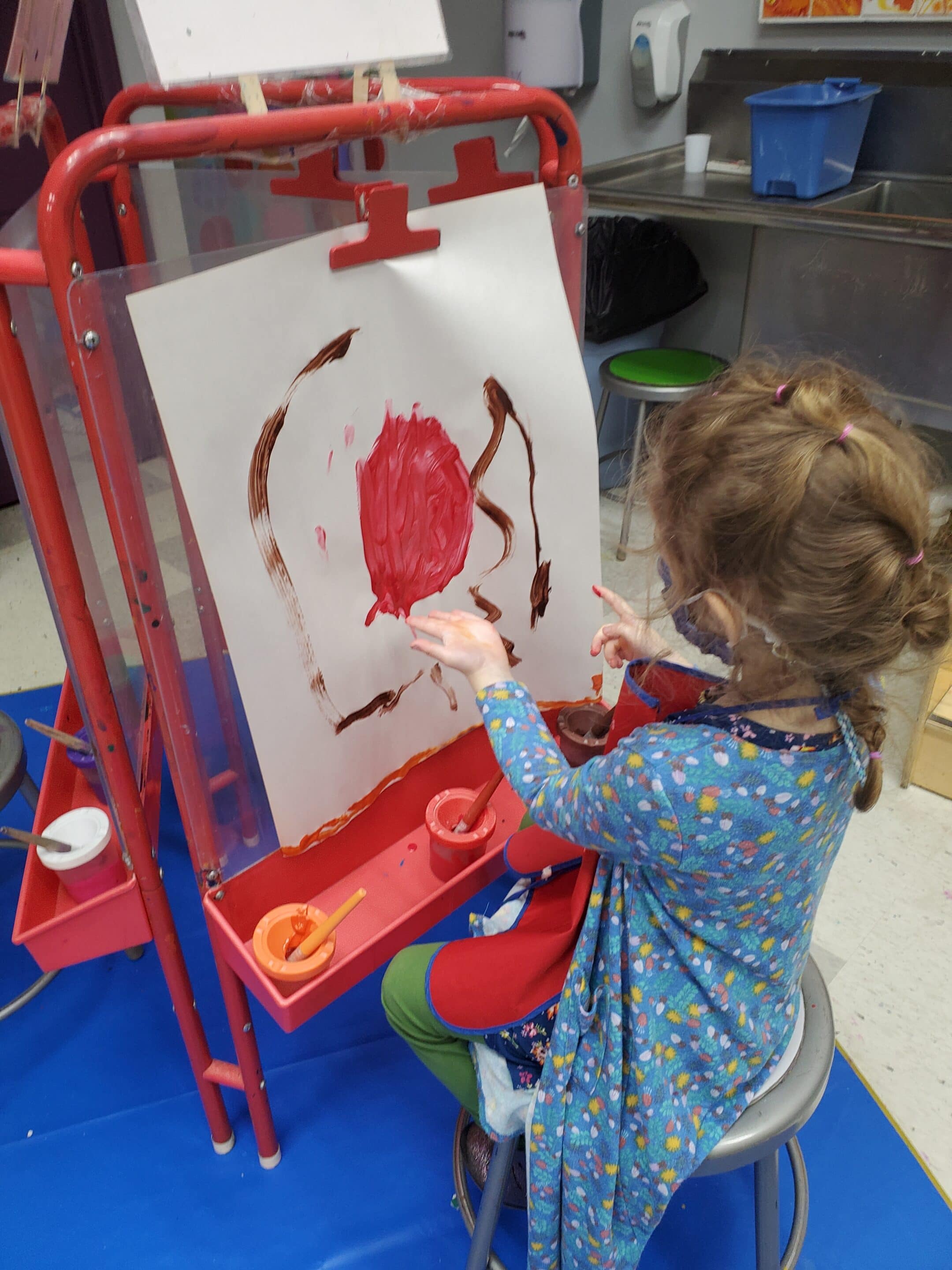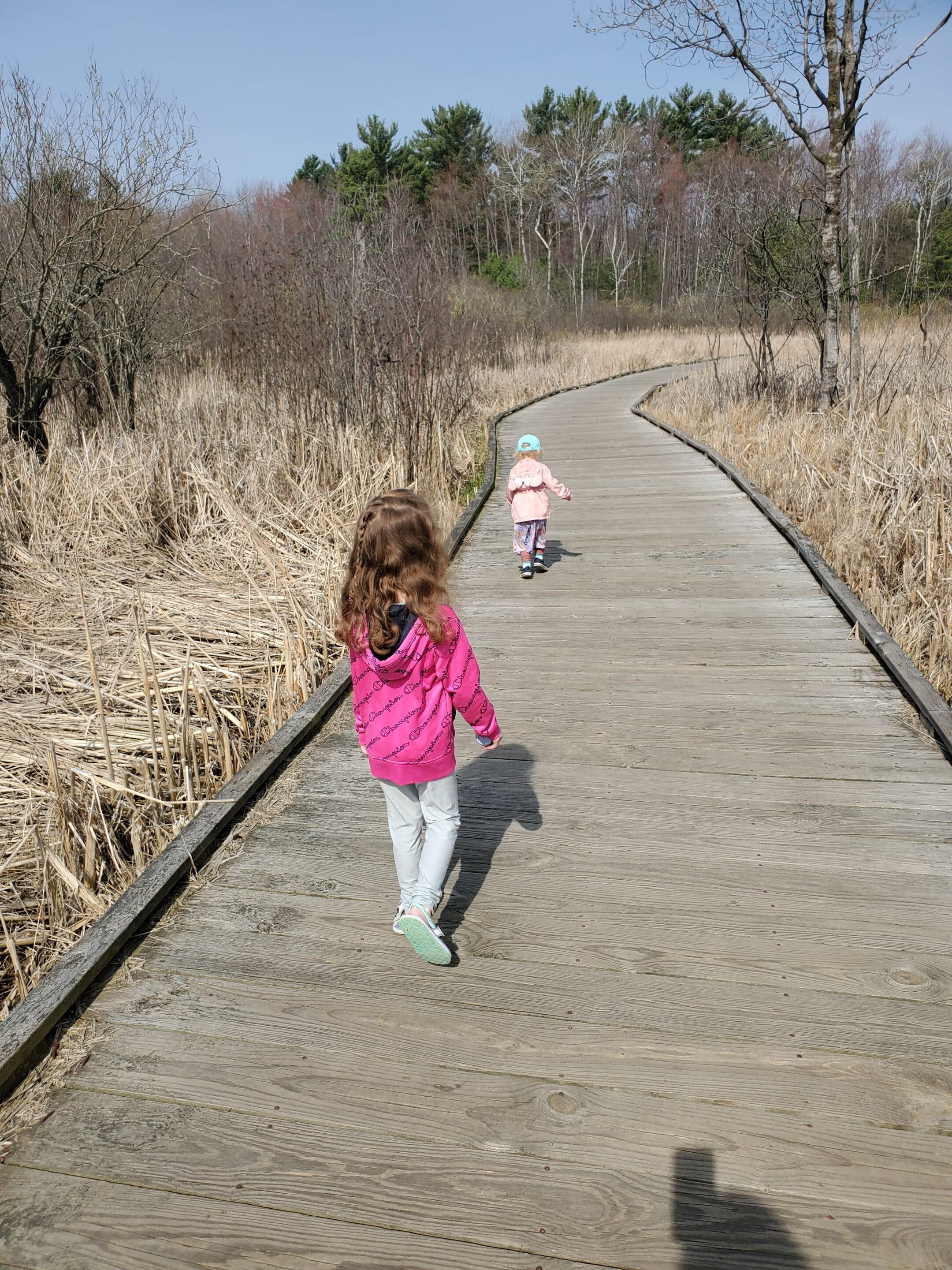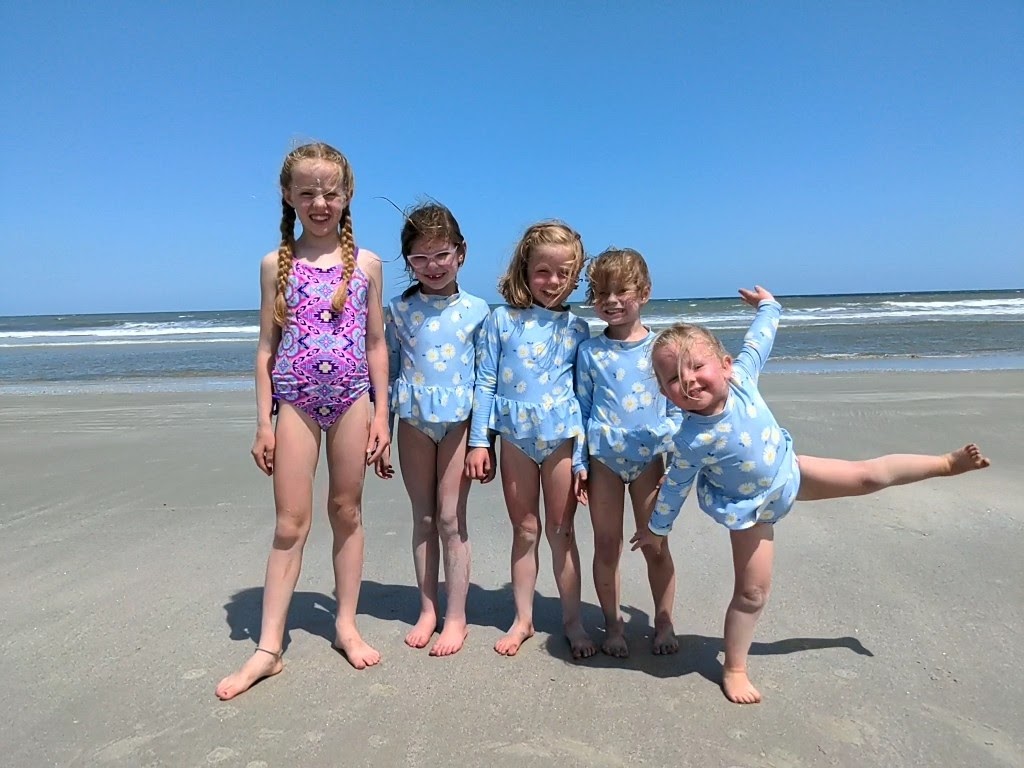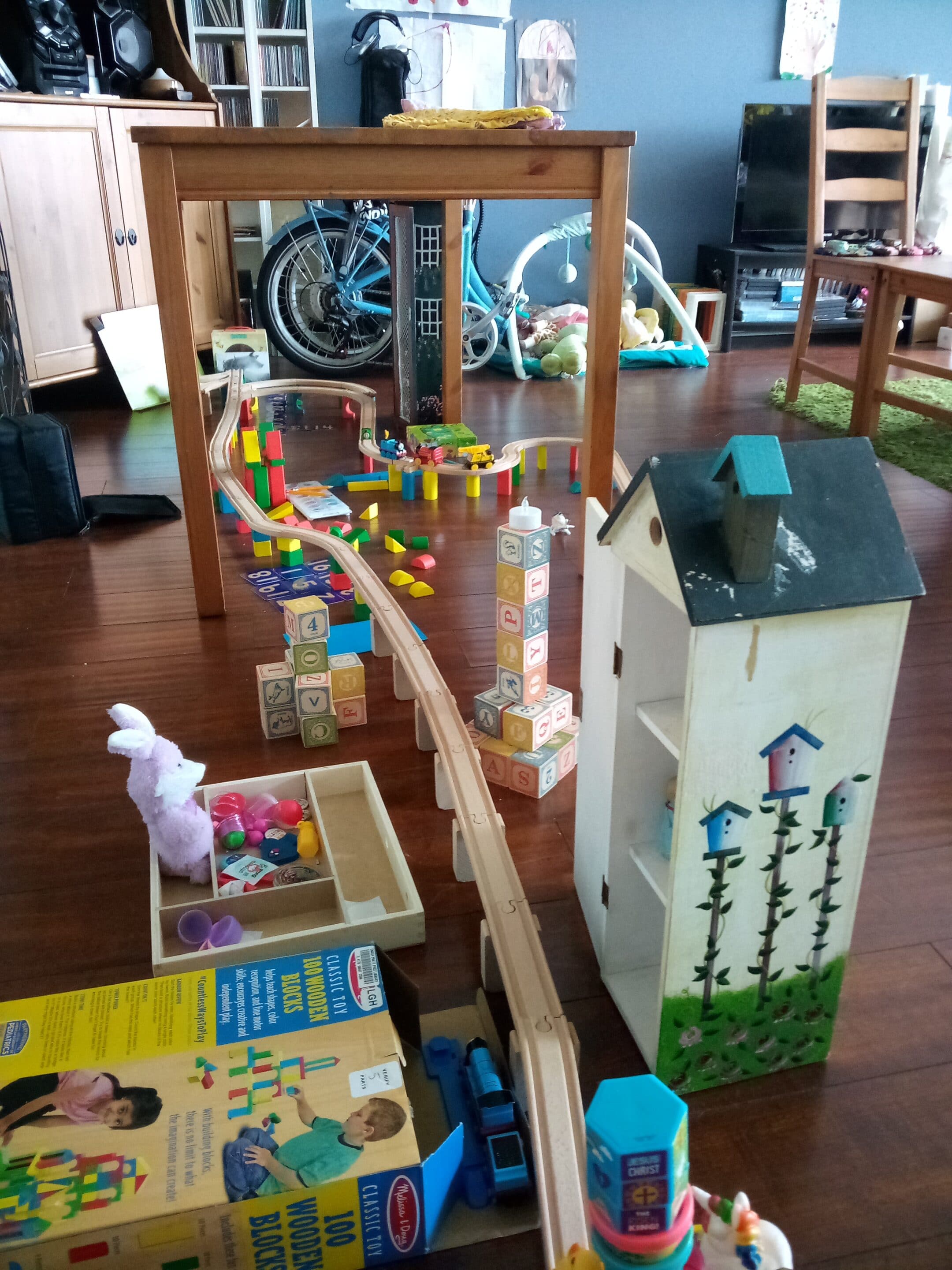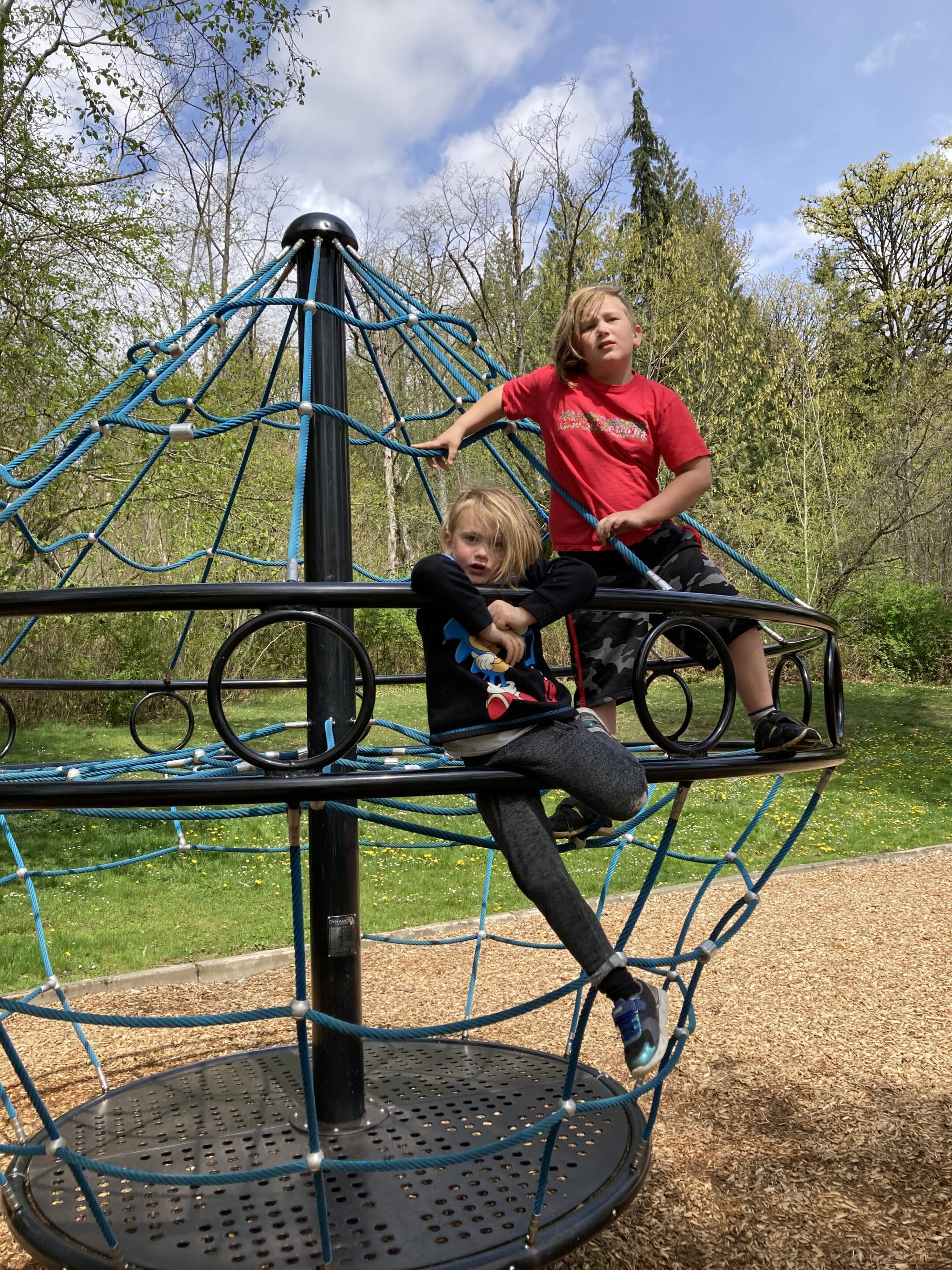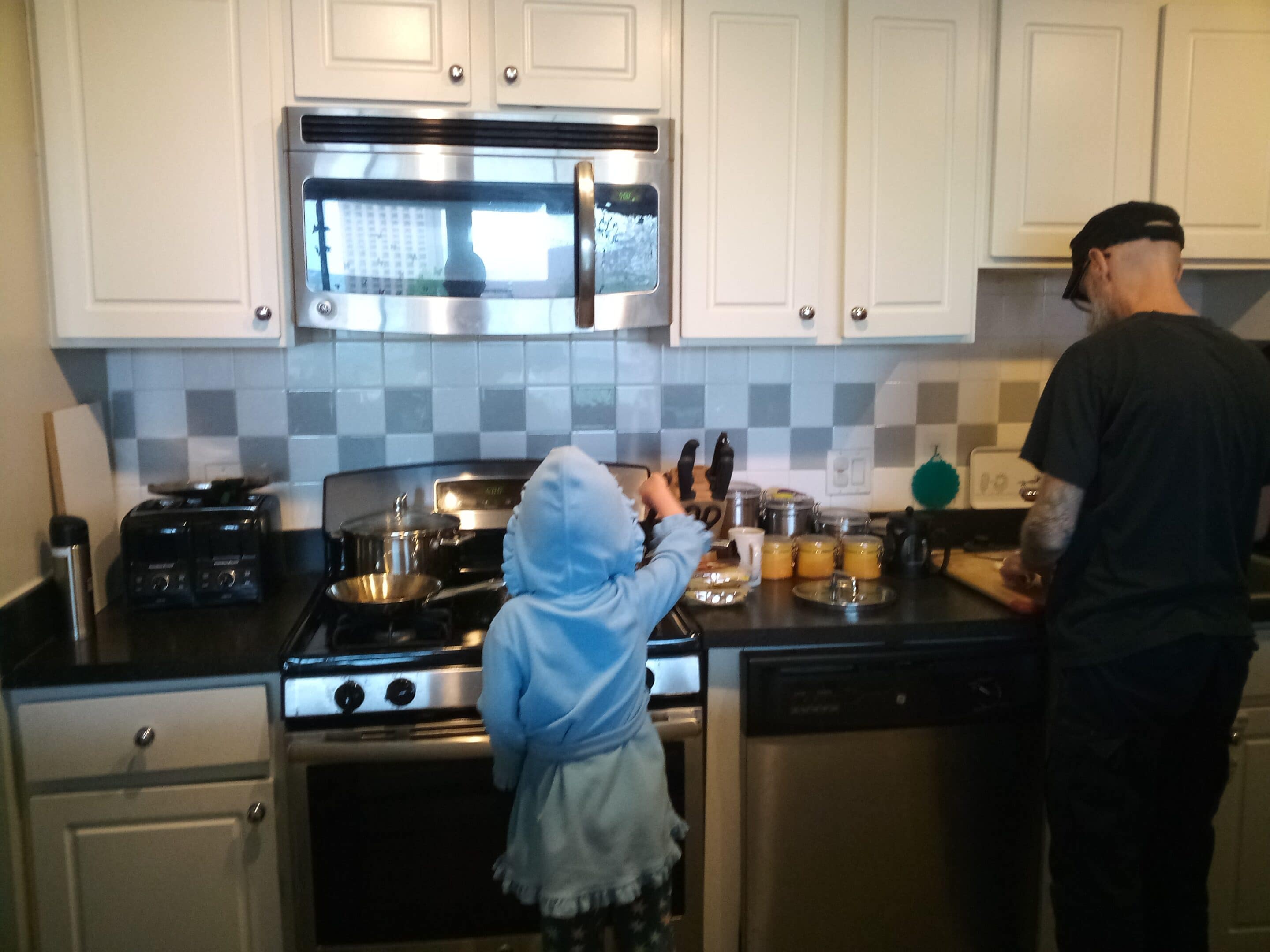While many did not see a problem with screens and social media, a majority of respondents expressed an understanding that things are not as they should be. Shockingly, it was not uncommon for them to spend 14, 15, 16, and even 17 HOURS A DAY on entertainment screens–as in, screen time unrelated to work or school. That means they’re not sleeping, not spending time with friends, not playing sports, and not making art or music. When totaled, the average daily screen time for these 12 and 13 year old respondents was 6.2 hours outside of school–excluding weekends and the ed-tech in their classrooms, which dramatically increases the count.
Perhaps surprising to some, even the kids who reported exorbitant amounts of screen time and did not see a problem with social media expressed a concern for children younger than themselves. This is reflected in answers like “heck no” and “NOOOOOOO” when asked “Do you think there should be an Instagram for kids under 13?” It was endearing to observe such empathy, humor, and understanding in kids going through some of the toughest years of growing up.
But don’t take it from me–check out their discussion on social media, screen time, and how we can help below.
Can you imagine a life without screens? What would that look like?
“I can imagine life without screens. I think the world would be less toxic and hateful.” –Abby
“Like how it was in the 70-90’s, just all vibes and chills.”–Ramiro
“Boring, sad and hell.” –Anonymous
“I think life without screens would be nice, the world would be less judgy and people would interact with each other more. You wouldn’t have to be worrying about what people are saying about you.” –Owen
“I would get more sleep.” –Blake
“I honestly can’t imagine a life without screens. It’d be impossible to communicate with friends who don’t live nearby, and for the people who are afraid to talk to people in person without getting nervous, it’d be really hard for them. As one of those people, I know from experience that it’s upsetting to talk to people in person when you aren’t a very social person.” –Alexandra
“Yes, I can imagine a life without screens. I would be able to read more, draw more, and hang out with my family more.” –Kiara
“I really can, it would be great.” –Sarah
What are the worst things about social media?
“People posting things about how bodies should look or how girls should look because it makes me insecure about some things.” -Ashlyn
“A 2 year old with a tablet.” –Connor
“The worst thing about social media is that I am in my room a lot and not with my family.” –Katie
“The fake friends, ‘friending’ a person online but never seeing their actual face.” –Nathanael
“The worst thing about social media is when people can’t ever have their own opinions without someone hating or shutting them down.” –Sarah
“The worst thing about social media to me is how much it has lowered my confidence. I end up finding myself comparing myself to other people a lot. “ –Daelynn
“The encouragement of doing awful things to others/yourself.” –Lillian
“How easy it is for people to find you.” –Amanda
“The amount that people talk about other people is crazy. That’s all that some people do as soon as they get out of school, they hate on other people” –Ramiro
“The cruelness of some people is the WORST thing about social media. Another thing is comparing yourself to models (that are FAKE). It just brings everyone down.” -Reese
What are the best things about social media?
“The best thing about social media is that some people can actually be very nice on social media. Some people are supportive, kind, etc., which can make people extremely happy. Another really good thing about social media is that whenever friends are texting each other, it puts both or all of the friends in a good mood.” –Alexandra
“The best thing about social media is seeing pictures and videos of the different places people go and the different ways they live their lives.”–Averie
“I like being able to post about fun things that I do.” –Darbi
“The best thing to me in social media is getting to see things like new craft ideas, or seeing how much someone loves their pet, or seeing new experiences, or when you feel down and someone makes you feel better.” –Markie
How can adults help YOU find more balance with screens?
“They can get off theirs too.” –Ashlyn
“They can remind us of the way things were, and how things can be now.” –Isabella
“I think that they can help us find balance by limiting screen time to hang out and do stuff together, and getting us to hang out with friends and be more social.” –Alexandra
“There’s not much they can do, maybe just if my parents paid more attention and talked with me more. Most of the time they are focused on my younger siblings, so there’s not much I have to do. –Daelynn
“Hang out with me more and spend time with me.” –Kirsten
How does social media impact your friendships?
“It takes me away from my friendships and socializing.” –Reese
“Social media impacts my friendships because my friends have other online friends and don’t spend much time with me. Also at sleepovers my friends never want to get off their phones to watch movies or do things I wanna do…she would even take it outside on the trampoline, like she’s THAT addicted to it… I can’t say I am not bad but I am not THAT bad.” –Olivia
“I feel that it has helped my friendships in a lot of ways. Like my best friend moved to Texas and we still talk all the time.” –Emma
“I’m not allowed social media, but I think a lack of social media can affect friendships. I don’t get references to modern popular culture, and I’m unable to talk to my friends out of school, while they get to talk to each other. It intentionally excludes me.” –Kamryn
“Social media impacts friendships because of the things people post. Sometimes it can bring people closer together because they enjoy the same content or post good things about each other, but it can negatively affect friendships because people could get into fights about what people say about each other.” –Isabella
What do you wish adults knew about social media/ screen time? What would you tell them?
“I wish that they knew how much it has impacted us. I would tell them how much it has done to us.” –Bruce
“I think that adults should know the dangers of being on the internet. I would tell them to check every once in a while on what their kids are watching or looking at.” –Gregory
“I wouldn’t tell adults anything except that they are on their devices a lot more than us kids and that they should have screen time limits too.” –Sophia
“I wish adults knew the amount of hate, gore, inappropriateness and just disgusting acts on the internet.” –Jakob
“I wish they could realize that a lot of the time it’s a way to escape reality.” –Emma
“I wouldn’t tell adults anything because I don’t want them taking social media away from me.” –Mariah
“That adults should NOT let <13 kids be on social media, with many saying that you need to be over 13; if kids under 13 are using social media, it could be a hazard to them.” –Gage
“I wish they knew that sometimes when you’re struggling it’s a big help getting to talk to people that way.” –Kailey
“I wish that adults knew how it affects people’s confidence and self image problems.” –Emma
“I wish adults knew that being on a phone isn’t always a bad thing and doesn’t mean you’re lazy.” –Abby
“I would tell them that kids don’t need to have phones and/or social media at a young age, INTERACT WITH YOUR KIDS!” –Owen
What would you like to change about the way you use screens?
“I think the way I should change my screen time is to come off of them more and then work more on myself.” –Shelby
“How much I’m addicted like my mom.” –Connor
“I would like to change how much time I spend on using screens because I spent WAYYY to much time on it this past weekend. I am not gonna say how much because it’s awful.” –Olivia
“I would like to change how it might change your style to be like everyone else.” –Camryn
“NO YOUTUBE ADS FOR KIDS!” –Isaac
“I would like to change the way that I am ALWAYS on my electronics. I wish I was more active.” –Gregory
“I wish that we didn’t use screens as much and that we could just be together in person and enjoy the special moments in life.” –Leah
“The thing I would like to change about using screens is the content that little kids are seeing.” –Karmen
“I would like to change the fact that younger kids spend so much time on it now that they’re missing out on so many fun activities that are a part of mine, and others’ childhood.” –Mya
“I want to change the fact that I doom-scroll a lot. Doom-scrolling is looking at a lot of negativity on the internet and bad events in the world, and is very unhealthy.” –Madison
What is the hardest part of unplugging?
“The hardest part of unplugging is being afraid I am going to miss something. For example, I am worried that I will miss a text message about a change in my sports schedule, or an update from my school/ team.” –Averie
“I think the hardest part of getting off social media is feeling the need to keep watching like it’s pulling you in.” –Ashlyn
“That i have no one to play outside with because people are on screens and i don’t go outside as much because of that”. –Hunter
“The hardest part of unplugging is feeling like you’re missing out on something, like if I can’t check my phone I just wonder what people are posting or who’s texting me or snapping me or if someone has liked one of my posts.” –Makenna
“The hardest part of unplugging is losing your streaks on snapchat or the spam app.” –Katie
“When it’s stuck inside the outlet.” –Connor

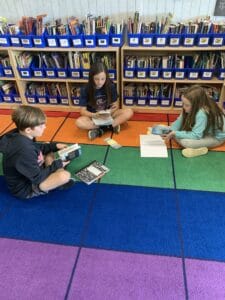 isn’t my phone.”
isn’t my phone.”


